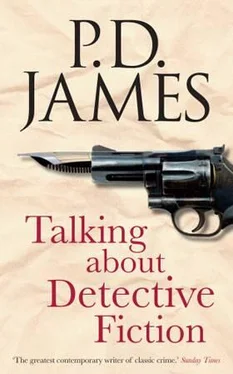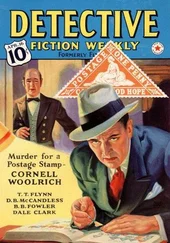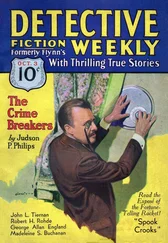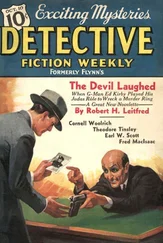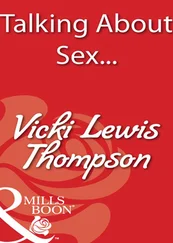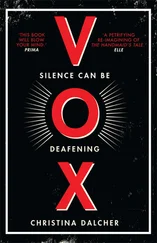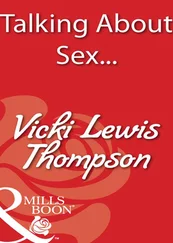From the beginning, film and crime writing have enjoyed a sustaining and lucrative partnership in crime, but never more so than today. Some of the earliest films were taken from crime stories, and any list of the most memorable and successful ever made will include crime movies. In general producers have opted for the fast-action thriller with its dominant testosterone-fuelled hero and its opportunities for spectacular action sequences, stunts and a far-ranging variety of locations which modern cameramen can exploit in pictures of breathtaking natural scenery or the cluttered danger and excitement of the great cities of the world. Alfred Hitchcock, who found his inspiration in murder and mayhem, explained in a television interview the problem of filming the classical detective story. He wanted his audience to be in thrall to suspense and horror; in a detective story they were more likely to be exercising their brains in deciding who would prove to be guilty. In the end this would be revealed, and in an anticlimax rather than a final shudder. The exceptions to this dominance of the thriller in films and television are, of course, the ubiquitous Holmes and Poirot. Holmes first appeared in 1903 in an extraordinarily short silent film, Sherlock Holmes Baffled , and later there was a series of his adventures in two-reelers made in Denmark from 1908 to 1911. Poirot first appeared in 1931, five years after The Murder of Roger Ackroyd was published. It was filmed in England, and thereafter every few years Agatha Christie’s iconic character has appeared in film and television played by a variety of actors, one of the most famous films being Murder on the Orient Express in 1974, with its international all-star cast, a story which, despite having so many improbabilities as suspects, remains a masterpiece of its type.
The classical detective story appears on television chiefly as a serial which exploits the existing popularity in print of the detective, of which Colin Dexter’s Inspector Morse is probably the best known. Films and television series which, while generally adhering to the classical form of the detective story, combine clues with action are the highly successful police procedurals. The police service has provided material for film and television for decades and there has been a remarkable transition from the avuncular goodnight salute of Dixon of Dock Green, both in the film The Blue Lamp and on television, through the greater realism of Z Cars; Softly, Softly; The Sweeney to Law and Order . In Prime Suspect , written by Lynda La Plante, we are taken into the disturbing search for a psychopathic killer; the heroine, Jane Tennison, is at once an effective senior detective and a vulnerable woman coping with the cost to her emotional life of this dangerous and still predominantly masculine world. Undoubtedly the importance of film and television will increase now that DVDs enable the best to be viewed at home. But how far the demands of film and television will influence the writing of crime fiction, including the detective story, is less easy to assess.
The crime novel, including the detective story, is now international, the most distinguished both in English and foreign languages being best-sellers throughout the world, and undoubtedly the translation of detective stories into English will continue. A catalogue I picked up in a Cambridge bookshop named 730 recent and forthcoming crime novels, many of which are detective stories, and what to me is new and interesting is the number of translations. The majority are from the Swedish, but France, Poland, Italy, Russia, Iceland and Japan are represented. I can’t imagine a catalogue in my youth featuring so many crime books in such variety or with so many translations from writers worldwide. The Swedish writer Henning Mankell is likely to become increasingly popular since his detective Kurt Wallander has recently successfully appeared on British television, the hero played by Kenneth Branagh. The list confirms my impression that although private sleuths still appear and in great variety, there is a growing preference among writers for a professional detective. But are we in danger of reducing the fictional police officer to a stereotype-solitary, divorced, hard-drinking, psychologically flawed and disillusioned? Real-life senior detectives are not stereo types. Would anyone, I wonder, create a fictional detective who enjoys his work, gets on well with his colleagues, is happily married, has a couple of attractive, well-behaved children who cause him no trouble, reads the lesson in his parish church and spends his few free hours playing the cello in an amateur string quartet? I doubt whether readers would find him wholly credible, but he would certainly be an original.
Among foreign detective writers, Georges Simenon, one of the most highly regarded and influential of twentieth-century crime novelists, has been available in English for decades. We look to Simenon for a strong narrative, a setting which is brilliantly and sensitively evoked, a cast in which every character, however minor, is uniquely alive, psychological acuity and an empathy with the secret lives of apparently ordinary men and women in a style which combines economy of words with strength and elegance, and which has given him a literary reputation rare among crime novelists. Inevitably, despite the apparent simplicity of style, he is a novelist who loses much in translation, but he still exerts an influence over the modern detective story.
I was interested also in a number of Golden Age writers who are reappearing in print, published largely by small independent houses. These include such popular stalwarts as Gladys Mitchell, Nicholas Blake, H. C. Bailey and John Dickson Carr, master of the locked-room mystery. It is highly unlikely that these emotionally unthreatening and nostalgic detective stories would be written today except as ingenious and clever pastiche or as tributes to the Golden Age. How strongly the typical mysteries of the inter-war years linger in memory; invariably set in large country houses in the depths of winter, cut off from the outside world by snowdrifts and fallen telegraph wires and with a most unpleasant house guest found in the library with an ornate dagger in the heart. How fortunate that the world’s greatest detective should have run his coupé into a snowdrift and taken refuge in Mayhem Manor. But does the success of a pastiche or the reissue of old favourites mean that readers for whom the detective story is primarily entertainment will begin to turn from the gritty realities of today in search of remembered satisfactions? This seems to me unlikely. I see the detective story becoming more firmly rooted in the reality and the uncertainties of the twenty-first century while still providing that central certainty that even the most intractable problems will in the end be subject to reason.
Whether we live in a more violent age than did, for example, the Victorians is a question for statisticians and sociologists, but we certainly feel more threatened by crime and disorder than at any other time I remember in my long life. This constant awareness of the dark undercurrents of society and of human personality is probably partly due to the modern media, when details of the most atrocious murders, of civil strife and violent protests, come daily into our living rooms from television screens and other forms of modern technology. Increasingly writers of crime novels and detective stories will reflect this tumultuous world in their work and deal with it with far greater realism than would have been possible in the Golden Age. The solving of the mystery is still at the heart of a detective story but today it is no longer isolated from contemporary society. We know that the police are not invariably more virtuous and honest than the society from which they are recruited, and that corruption can stalk the corridors of power and lie at the very heart of government and the criminal justice system.
Читать дальше
